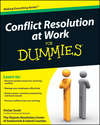Kitabı oku: «Officer Factory», sayfa 4
INTERMEDIATE REPORT NO. 1:
The Curriculum Vitae of Lieutenant Karl Krafft, or
The problems of respectability
My name is Karl Krafft. I was born on 8th November 1916, at Pohlitz, in Stettin, Pomerania, son of a post office inspector called Joseph Krafft and his wife Margaret, whose maiden name was Panzer. I spent my childhood in the town of my birth.
The sky is dark, as it almost always is, and it rains a lot. I have grey eyes and the mirror I see them in has lost its sheen. The houses in the street are a muddy grey, the same color as my father's face. When I kiss my mother my hands wander across her forehead; and her hair is stiff and dry, grey as old silver, almost as grey as lead.
When it rains, dull grey, milky grey water runs through the streets. We run bare-foot and the water comes up to our ankles. Our hands scoop sand and earth from the garden and mud from the street and we knead it together and compress it into a dough-like mass, build dams with it. And the water rises, forms a pool, spreads and overflows the pavement, threatening to invade the cellars. People curse us, and we laugh; then we trample down the dams and run off until we can no longer see or hear the people cursing us.
Once again water is flowing. And this time it's the river at the edge of the town, called the Oder. The waters rush past sucking and churning up the earth and the sand, driving them before it, as we stare into the swirling current. We fold up huge banknotes on our knees. These banknotes have lots of zeros on them and we fold them into paper boats. They float and bob giddily about on top of the water, turn drunkenly round and round, bump into each other—but the important thing is they float. This paper money makes wonderful boats.
“All the money's any use for is to wipe your arse on!" says a man, who's my uncle. “No," says my father,” that isn't true!" “Everything printed or written, all paper in short," says my uncle,” is only fit to wipe your arse on." “You shouldn't say that!" cries my father indignantly, “at least not in front of the children."
Father doesn't talk much. Mother hardly talks at all. It's always very quiet with us in the little house. only when there's discussion of what my father calls " higher things " does he get at all excited—talk about the Fatherland for example, or the postal service. " When many men love and honor a thing," says my father, ”then you can be certain that it's worthy of love and honor—you mark my words, my son." And then my father is suddenly standing to attention in the middle of our little garden, for the head of the post office, Herr Giebelmeier, is passing by. “Very fine, Krafft," Herr Giebelmeier shouts at my father. “Really very fine—your flowers are like so many soldiers standing there. They make a brave show. Carry on, Krafft!"
“We’re going to paint this little house of ours," says my father after thinking for a long time. “We want to make a brave show of it!" And so my father buys whitewash and lime and two paint-brushes—the smaller one for me. And we begin painting it blue—bright blue, the color of the sky. And then once again the head of the post office, Herr Giebelmeier, comes past and says “What on earth are you doing there, Krafft? What's all this about?" “I’m smartening the place up a bit, sir," says my father, standing to attention. “But you can't do that," says Giebelmeier firmly,” that sort of thing's much too ostentatious; it's too garish, man. If only you'd chosen post-office yellow, I might have come round to it—but sky blue! It positively screams at you! Anyway, all I can say is: it's certainly not right for any official of mine."
“Very good, sir," says my father, and when Giebelmeier has gone my father says to me: “He was an officer of the reserve, you see." “I don't see," I say. “What’s the connection between an officer of the reserve and house painting?" “Later," says my father, “you’ll understand that too." And our house stayed grey.
In 1922 I began going to the primary school in my home town. My marks were always indifferent, but I steadily made my way up through the eight forms.
My books are tattered and well-thumbed. They are covered in smudges because my hands are sweaty and not always clean. They're full of penciled scribbles: underlinings, marks, words written in, drawings, little men sometimes, and once even a woman, as I had seen her drawn on the lavatory wall in the railway station, with thighs apart and mountainous breasts. Every time I see this picture I feel ashamed because it's such a bad drawing.
One of our teachers called Grabowski catches sight of this picture. We always call him “Stick” because he seems inseparable from the cane he carries.” Look at that—the little swine!" says Stick delightedly, waving his cane about in front of my face. “A dirty little swine, eh?" “I copied that," I tell him. “You can see it on the lavatory wall in the station." “Listen to him," says Stick. “So you've been looking at filthy drawings in the lavatory, eh?" “Well, yes," I say,” you can't really help it." “Now, my lad," says Stick, “I’m going to show you what you can help and what you can't. Bend over. Bottom in the air. Trousers tight. Right." And then he beats me with the cane, until he's panting for breath. “Right," he says,” that'll teach you, you little stinker!" And I think to myself : Yes, that'll teach me—I'll never let him catch me with a drawing like that again.
“Always be obedient," says my father. “Obedient to the Almighty and to the authorities. Then you'll have a clear conscience and your future will be assured." But the new authorities deprived him of his living because he's been obedient to the old authorities.
“You must learn to love," says my mother. “To love nature and animals and men too. Then you'll always be happy and cheerful." But when my father falls on hard times she cries a lot. Her way of loving sometimes makes me sad. From then on she is never happy or cheerful again, even when my father is given the chance of obeying the new authorities —though this makes him very proud.
The faces of the teachers all seem the same to me because their mouths all go up and down in the same sort of way. The words all sound very smooth and polished and all get written down at one time or another. Their hands, too, all seem the same; their fingers are mostly curled round a piece of chalk, a fountain-pen, a ruler or a cane. Only one of them is different. His name is Schenkenfeind. He knows a lot of poetry by heart and I learn everything he recites. And some more besides. I don't find this particularly difficult and Schenkenfeind is liberal with his praise. I even learn a poem about the Battle of Leuthen which has fifty-two verses. And Schenkenfeind says “A fine poem!" And I believe him because he seems so sure about it. He actually wrote the poem himself.
There's a schoolmistress called Scharf who comes and sits beside me on the bench. She is soft and warm and her limbs seem made of rubber and I am overwhelmed by a desire to seize hold of these limbs to find out whether they're really made of rubber or not. But I don't—because she's close to me and I can smell her. I move away from her, feeling sick. “It’s stuffy in here," I say, “there’s a nasty smell." She gets up abruptly and never looks at me again. This suits me fine because I don't like her at all.
Some days later I catch sight of her one evening in the park, while I'm trying to trap glowworms. But this woman Scharf is lying on a bench in the dark with the teacher called Schenkenfeind, the man who writes such vast long moving poems. But the things he's saying now sound very different. He is saying the sort of things that Meerkatz the man who drives the beer dray says to his mare. Anyway I no longer want to learn from him anymore.
“Man must learn if he is to hold his place in life," says this fellow Schenkenfeind. “I don't want to learn," I tell him. “No," says the teacher, " you'd rather go sniffing round the place, creeping about the park and spying on the lovers there —I saw you! You have nasty dirty thoughts, but I'll soon drive them out of you. As a punishment you'll write out ten times the beautiful poem 'on Eternal Constancy.' And what's more you'll go and apologize to your teacher Fräulein Scharf at once." But I don't go and apologize.
When I left my primary school in 1930 I went first to a commercial school in Stettin. After that I worked in the estate office of the big Varsen estate at Pöhlitz, where I was mainly concerned with the pay-roll and the issuing of supplies.
The old woman who lives in one of the attics above us passes me on the stairs, goes on down, and then suddenly stops. She stops, and collapses as if her legs had snapped like matchsticks. She lies there without moving, like a bundle of rags. Slowly I go up to her, stand in front of her, bend over her and kneel down and look at her. Her eyes are yellow and staring; her thin mouth, with its dry, cracked lips embedded in a web of wrinkles, is twisted open and a thread of saliva runs down on to the dirty floor. She is no longer breathing. I put my hand over her shriveled breast at the place where the heart should be, but it is no longer beating.
Giebelmeier, the head of the post office, gives Father a dressing down in front of everyone in the middle of the post office, because of some express letter which hasn't arrived quickly enough. Quite by chance I happen to be standing there behind a pillar. And Giebelmeier roars and gesticulates and goes purple in the face. But Father never says a word; he simply stands there, small, hunched and trembling. Rigidly at attention. He looks up rather shiftily at Giebelmeier, who stands stiffly and proudly in front of him, roaring his head off. Because of some express letter or other. And Father remains silent, abject.
That evening Father sits there silent as ever, and asks for a beer, which he drinks in silence. He asks for another beer. And then another. “Karl," my father then says to me, “a real man must have pride, a sense of honor. Honor is the all-important thing. One must always defend one's honor." “Oh, yes," I say,” but sometimes one has to remain silent and accept abuse for the sake of a quiet life." “Never," says my father indignantly. “Never, do you hear? Take me, for example, my son. To-day in the post office I had a row with the head, this fellow Giebelmeier. He started shouting at me! But he came out of it badly. I told him off. Gave him a regular trouncing!" “Well done, Father," I say, and leave the room, because I feel ashamed for him.
I hold my friend Heinz's hand, which is cold as ice. I raise his head and turn it round slightly and see the rent in the skull and the watery blood and brains running out, all yellow and grey. Gently, I lay my friend's head back again and my hands are sticky with blood. And then I look at the weapon on the ground, a .98 rifle, the end of the bullet filed off. He hadn't wanted to live. What has to happen to make a man not want to live like that, I wonder. And I can't get rid of the thought.
The girl snuggles up to me; I feel her body through the cloth of my suit. All I can see is the gleam in her eyes, but I feel her breath on my face and the moistness of her lips, and my hands slide down her back, brushing the boards of the fence against which I'm pushing her. A wave of passion comes over me, and I no longer know what I am doing. Then I have a great feeling of exhaustion and hear a voice asking me: “What’s your name?"
“It was two hundred hundredweight of potatoes," I tell the accountant in the estate office. But he doesn't look at me and simply repeats: "It was one hundred hundredweight. Do you follow me?" “No, I don't," I say. “We delivered two hundred hundredweight." “But only a hundred are being entered up," says the accountant. “And we enter up what I say. Is that clear? Perhaps you've heard something about the crisis in agriculture, Krafft? It may have occurred to you to wonder how we keep our heads above water? And here you are wanting to let the State—a State like this, I ask you!—wanting to let the State swallow up all our hard-earned cash! It's suicide. Put it down, then: one hundred hundredweight! Enter that up." “Enter it up yourself," I tell him, pushing the books towards him,” and kindly keep that crisis-in-agriculture stuff to yourself in future!" “Krafft," the accountant then says, “I’m afraid you're not really cut out for this profession. You can't take orders from people. You don't co-operate." “I’m not going to make any false entries," I say. “Look here," says the accountant, “are you trying to accuse me of fraud? Just look here, will you—what's written down here? What have I written? Two hundred! There you are, you see. I only wanted to test you. And of course I'm not going to stand for it if you're going to start suspecting me and accusing me of dishonesty. You're not a person one can work with. I'll have to draw my own conclusions!"
One evening my uncle says to my father: “Your son Karl doesn't seem to have understood the signs of the times. He goes to church too little and makes no preparations for a family. As a result he's beginning to get ideas into his head. He'd better be sent into the army. They'll soon knock some sense into him there."
I began my military service in 1937. When my two years were up I was made a corporal and released, only to be called up again shortly afterwards in the summer of 1939. I was with the colors at the outbreak of war, promoted sergeant after the Polish campaign, and commissioned as a second lieutenant after the campaign in France. During the campaign in Russia I was given command of a company, was promoted lieutenant, and then at the beginning of January 1944 was posted to the officers' training school. I hold the following decorations: Iron Cross First Class, Iron Cross Second Class, the Close-Combat Clasp in silver, and the Wound Badge in black.
Corporal Reinshagen, who's in charge of my training as a recruit, has many fine qualities and is a born soldier. He's a fine upstanding fellow, full of drive and possessed of an iron will, but not exactly a pillar of the Church. Thus for example he knows all the relevant military regulations backwards, but no others. However, I also take care to be well informed on various aspects of military regulations, particularly those sections dealing with the treatment of subordinates and their right to lodge complaints. Sometimes I quote these at him and he doesn't like it. One day I turn my knowledge to practical advantage, and hand him a comprehensive and carefully worded complaint. About himself! To be passed on to higher authority. At first he simply bellows at me. Then he grows noticeably milder, and even displays certain friendliness. “You can't do this to me," he says disarmingly. “All you've got to do is to behave decently," I reply. And he promises that he will.
Girls in the few hours we're allowed off duty—mostly picked up in the bar called The Anglers' Rest: servant girls, shop girls, typists. A dance or two, a drink or two, a short walk to the near-by park, and then and there quick but basic satisfaction. Back again for another dance or two, the whole experience washed down with beer. And then back to barracks, until next Saturday evening.
Then Eva-Maria. An official's daughter. Picked her up in the cinema—some film or other with a broad-shouldered woman with a lion's mane of hair and a deep male voice growling love songs. A diversion urgently required—fortunately Eva-Maria is sitting beside me. She takes me home—a clean, well-kept home, a decent place. Her parents are away. Wonderful carefree hours. A strangely intoxicating sense of happiness. And as I make my way back late, very late, to barracks, I feel an overwhelming desire to sing at the top of my voice. I'm so happy! But the night has no sequel, not for me at any rate. “Don’t let's get sentimental," she says. “But I love you!" I cry. And it's the first time in my life I've ever said such a thing. “That’s what the others say, too," declares Eva-Maria. Then she goes off with one of the others.
I stand at night in the street of our little garrison town and listen into the darkness. And I raise my eyes to where a soft light shines behind a curtained window. When I close my eyes I see her before me, I see everything she does and everything that happens to her: I see her smile, radiant with happiness and, pleasure and at the same time dread. I see her quivering mouth tortured with desire, see her breasts as she covers them with her hands, see the rounded curves of her body. And I close my eyes, and now it is myself who am with her in that one night I spent with her.
And I say to myself: “I’ll never again tell a woman I love her. Never."
Then comes the war. A man ducks down in front of me behind the rim of a well, all cramped as if doubled up with pain. His hair sticks out from under his cap. He's frightened and his body and clothes are covered in filth. I get him in my sights at a range of about sixty yards and raise the barrel of my rifle towards his temples where he has an unruly tuft of hair. Slowly I curl the forefinger of my right hand round the trigger, but I can't bring myself to shoot. I can't do it. The man behind the rim of the well shoots, though. And a fellow beside me shudders, stares for a second into nothingness, then blood spurts from between his eyes and collapses.
“Here’s an extra loaf for you," Sergeant Taschenmacher tells me. “I don't want it," I answer. Sergeant Taschenmacher has pinched two dozen loaves from the ration truck for his own private consumption. “Come on," he says amiably, and he can be very amiable when he wants, “don’t be a wet, go ahead and pocket the loaf, it may come in handy. You can even get yourself a real virgin with it if you feel like it—I'll throw in a suitable address for nothing. You see how generous I am!" “Sorry," I say. Now he's much less amiable. “Look here," he says, "are you out of your mind? What is it you want? Two loaves? Well, all right then." “No," I say. “Well, three loaves, then," he says angrily, "and that's my final offer." “I insist that the two dozen loaves go where they belong," I reply. “And that's my final offer. If they don't I'll report the matter." Cursing, Sergeant Taschenmacher loads the two dozen loaves up on to the truck again all by himself.
The child wants to come to me; it raises a hand and opens its little mouth. But the officer chases both mother and child away. Then he sets light to the farm, theoretically to give a better field of fire. The smoke billows softly, nauseating, towards me, wreathing itself in foul, thick, yellow and green waves about my face. And I stand there motionless, trying not to breathe and listening to the choking sobs of the woman and the gasping of the child. But I neither move nor breathe. “You have to kill to prevent yourself being killed," says the officer. “That’s the law of war; you can't get away from it."
“Please go and see my wife," one of my comrades asks me. “Take her this parcel; I've saved a few rations. Give her my love and tell her I think about her all the time." And then I find myself sitting beside this wife of his. I've got a lot to tell her and she's very happy as we sit there having a drink together. I make a move to go, but she won't let me. “It’s so nice here," she says. It's warm in the room and getting warmer all the time and she says: “Make yourself at home; it's so nice together here." Well, fine, so I take off my tunic. But why does she then have to take off her blouse and stockings? Ah well, it is warm, and it's very nice being together, as she says, and besides she has utter confidence in me. I like this and we have some more drinks. She comes closer and suddenly says: “Do you always take so long or have you just forgotten how to do it? Or is it that you just don't like me?" “That’s it," I say, “I don't like you." And I hit her in her beautiful, stupid, wanton face.
“You’re an officer now," says my C.O.,” and I hope you'll prove worthy of your commission, Second Lieutenant Krafft." “I’ll try to, sir," I answer.
A hundred and twenty men are delivered into my hands, entrusted to my care. I march with them, sleep with them, and share my food with them. We also share our cigarettes, perform our natural functions together, and kill together, shoulder to shoulder, day and night, month after month. Some of them leave me to be replaced at once by others—quite a few die. Some die accidentally, others as a result of an order, others because they no longer want to live. Death is with us all the time. But it always passes me by. Am I being spared, and if so, for what?
“You’re a lieutenant now, Krafft," says my commanding officer,” and I hope you'll prove worthy of your promotion." I hear him say this but I make no answer. What does it mean: to be “worthy "?
Home again, or rather what's called home, for the once-enchanting little town is now barely recognizable. A hydroelectric works has sprung up apparently overnight, with huge pipes and boilers covering an area of several square kilometers, and there are lots of little houses for the engineers, wooden barracks for the workers and office employees, and houseboats on the Oder, old barges, floating barns for the slave-laborers and others. From time to time some of these can be seen in the distance dangling from a gallows on deck —hanged for sabotage, espionage or various other things. Police and security units are interspersed among them. Finally there are twelve anti-aircraft batteries in the vicinity. But worst of all are the bombs. In exactly thirty-five minutes one night my little home town ceases to exist, and my parents are dead.
Looking back down the years there seems just an endless series of battles and corpses and copulation, murder and sex. In Poland, in a western suburb of Warsaw: a half-charred, stinking house, and in it a woman called Anja—two days. In France, in Paris: some hotel or other in Montmartre near which I found Raymonde—four nights in six weeks. Russia, Jasnaja, Poljana, near Tula, where Tolstoy lived: in the museum there, a girl whose name I never knew—twenty minutes. And all for food, or for schnapps, or for passes of one sort or another. Almost always followed by remorse and disgust with oneself. Never once anything like real love, even when the girls were German, as for instance on some night train journey, or on a truck transporting members of the Women's Auxiliary Corps, or in an operating tent while the doctor slept off his drunkenness.
But then comes a girl who disturbs me profoundly, a girl whom it's a pleasure to be with and into whose eyes I can even look afterwards. She has a wonderful, redeeming sort of laugh which banishes all remorse or disgust. I find myself emotionally involved, or at least become aware of a deep need in which lust is strangely unimportant. The whole thing is rather worrying, after all that's happened down the years, and the most frightening thing of all is that I sometimes feel tempted to say what I've determined never to say again: "I love you!" But I won't ever say it again, not even for her. This girl's name is Elfrida Rademacher.









